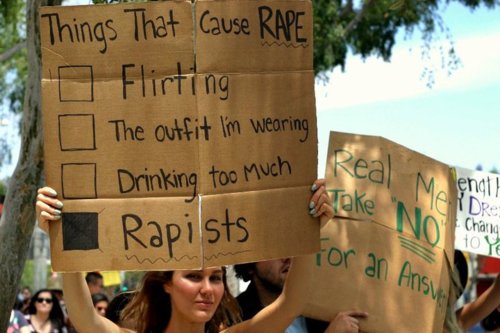Harvey Weinstein, Charlie Rose, Roy Moore, James Toback, Mark Halperin, Kevin Spacey, Matt Lauer, Jeff Hoover, Jeffrey Tambor, John Lasseter, Glenn Thrush, Andrew Kreisberg…
People talk about sexual assault like it’s a bad habit that men have. — Jon Stewart

Heck, I could write my longest post yet by simply listing all their names.
But it’s not just movie stars, we also have politicians from Roy Moore to Al Franken to even the President himself committing these loathsome acts.
And in both these domains, we see a common thread: The perpetrators are men of power.
DOES POWER REALLY CORRUPT?
Previously on this site, we talked about some of the psychological consequences of power, and we can see their effects with perfect clarity in the present state of affairs.
1. Power Promotes Self-Interest
In a previous post, I’ve discussed evidence showing that the powerful are less empathetic. That is, because they have access to and/or control over desired resources, they simply don’t need to pay attention to the feelings of others. More recent research extends this link by showing that the powerful (specifically those who possess a weak moral identity) are more likely to take from the 
With sexual assault, then, these powerful individuals don’t feel obligated to concern themselves with the wellbeing of others. They’re powerful and have what they need, so they can keep taking what they want without recourse.
2. Power Leads to Confidence
Whenever you generate a thought (“I should do this”), you generate it with a certain amount of confidence (e.g., “I’m very certain I should do this” vs. “I think I should maybe do this”). But when you’re powerful, your thoughts tend to be generated with high confidence. For example, someone like Al Franken may think, “I should take this really degrading picture of a woman,” and because he’s powerful, he has a lot of confidence in that thought.
Comparatively, someone with lower power may generate the same despicable thought; however, because he has lower power (and subsequently lower confidence in his thought), he’s less likely to believe it’s the right thought to have.
3. Power Leads to Action
Again, because feeling powerful means feeling confident in one’s thoughts–and feeling confident in a thought means you’re more likely to act on it–the powerful are more likely to act on the thoughts they generate.
Unfortunately, because we humans often generate self-interested thoughts, feeling powerful becomes dangerous. That is, if someone like Harvey Weinstein generates the thought, “I’d like to sleep with that woman whether she wants to or not,” his status of power leads him to having greater confidence in that thought—which in turn makes him more likely to act on it.
BUT WHY NOW?
When survivors come out in waves like we’re seeing now, many defendants of these rapists claim that the woman is just trying to get famous, or if she really didn’t want the sexual advance, why is she only coming forward now?
Let me address such ignorance below:
For all of history, women’s claims of sexual assault have often been denied as make-believe or intentionally false. In fact, assertions of sexual assault, of all crimes, has the highest rate of being discredited by others. So if you’re a woman, why would you want to stake your reputation (and often your livelihood) on a claim others may reject and ridicule?
However, when one woman comes forward, it provides validity: Two claims are harder to dismiss than one. For example, when Taylor Swift testified against the DJ that groped her, calls to the Rape, Abuse, and Incest National Network’s hotline increased by 35%. Women were given faith that others would believe them, too.
2. Confusion and Self-Blame
One of the first questions that sexual assault hotlines receive is: “Was I raped?”
Survivors either rationalize that it wasn’t “a big deal” or blame themselves for the terrible act, which reduces their likelihood of reporting the crime. For so long, society has pointed blame at the woman (e.g., “You shouldn’t have been wearing those clothes”), making them feel like it was their fault. Even juries today are less likely to convict a rapist if the woman didn’t “fight back.”
Moreover, when experiencing sexual assault, it produces a heightened state of distress which impairs the frontal cortex (a brain area involved in making and storing memories). So, when women’s testimonies of the incident are “foggy,” it’s easier for them (and society) to blame the victim, when really, a fuzzy memory has nothing to do with whether the crime happened or not.
Although it can be difficult to stand up for oneself, research shows that humans are remarkably good at standing up for others. So although a single woman may not feel comfortable pressing charges when she’s doing it for her own sense of justice, hearing that such assault has been perpetrated against others can provide the motivation to stand in unity with them.
Together, then, these women are not only bravely voicing their support for the other women who have come forward, but it may also provide the motivation to stand for other, future women who could fall prey to these evil individuals.
MOVING FORWARD—TOGETHER
No matter if a guy says it “just a joke” or “horseplay” or “locker room talk,” sexual assault is sexual assault.
We are all on this planet together, the powerful and the powerless, and it should be our ultimate goal to make it the safest and most habitable place we can.
Sincerely,
jdt
Everyday Psychology: Although today’s post focused exclusively on sexual assault against women, these crimes happen against men, too. So regardless of your gender, if you are a survivor yourself, or someone who has become a confidant, here is a few resources you may find helpful:
- National Sexual Assault Hotline: 1-800-656-4673
- National Alliance to End Sexual Violence: http://endsexualviolence.org
- Advice and tips on how to support a survivor of sexual assault
DeCelles, K. A., DeRue, D. S., Margolis, J. D., & Ceranic, T. L. (2012). Does power corrupt or enable? When and why power facilitates self-interested behavior. Journal of applied psychology, 97(3), 681.
Lisak, D., Gardinier, L., Nicksa, S. C., & Cote, A. M. (2010). False allegations of sexual assault: An analysis of ten years of reported cases. Violence Against Women, 16(12), 1318-1334.









